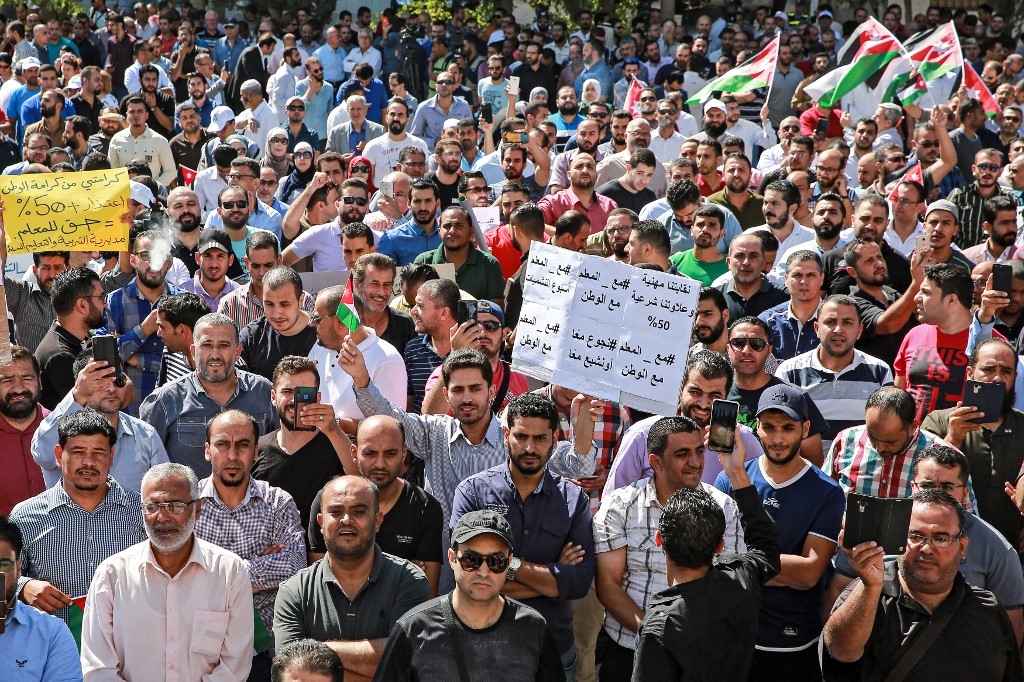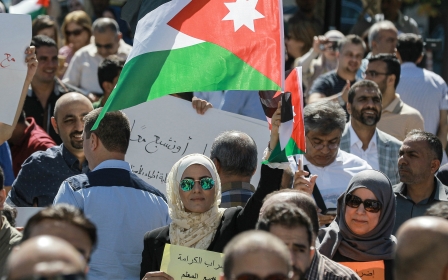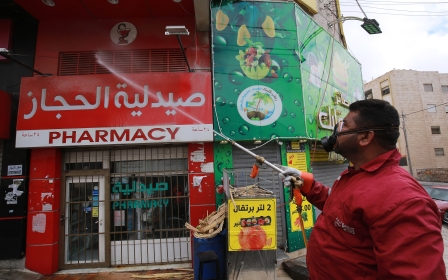Jordanian judge releases teachers' union leaders after protests

A Jordanian judge ordered on Sunday the release of 13 teachers' union leaders, whose arrests a month earlier set off protests by teachers in the country.
The entire elected board of the union had been accused of unspecified "financial violations", and the union had been closed down by authorities on 25 July.
The union had been leading a campaign for higher pay in the indebted kingdom, whose economy is reeling from the coronavirus pandemic.
Human Rights Watch (HRW) last week accused Jordanian authorities of harassing and arresting anyone trying to report on the arrests and protests.
Teachers' Association lawyer Bassam Freihat confirmed the release of the entire elected board, including acting head of the union Nasser Nawasreh, as they had completed a one-month detention period without the bail allowed by the judicial system.
"The court also decided to release a number of teachers who had been arrested during demonstrations" before and after the arrest of the union leaders, Freihat said.
Neither the judicial source nor the lawyer were able to give further details or say whether the 13 would face further legal action.
However, the union remains closed even as Jordan's schools are due to reopen on 1 September, and teachers returned to state-run schools on Sunday to prepare for the new term.
'Jordan's shrinking space for journalists to operate reflects the country's slide into repression'
- Michael Page, HRW
In July, the state prosecutor Hassan Abdallat ordered a two-year closure of the union's headquarters, its branches and offices nationwide and the arrest of the 13-member union council.
They were accused of unspecified "financial violations" and questioned on criminal and corruption charges, state media reported at the time.
On Tuesday, HRW said the gagging order banning the media from covering the case was the "latest in a series of restrictions on press freedoms".
At least two journalists were arrested for covering union protests and two others beaten, the watchdog said.
"Jordan's shrinking space for journalists to operate reflects the country's slide into repression," said HRW's deputy Middle East director Michael Page.
Middle East Eye propose une couverture et une analyse indépendantes et incomparables du Moyen-Orient, de l’Afrique du Nord et d’autres régions du monde. Pour en savoir plus sur la reprise de ce contenu et les frais qui s’appliquent, veuillez remplir ce formulaire [en anglais]. Pour en savoir plus sur MEE, cliquez ici [en anglais].




